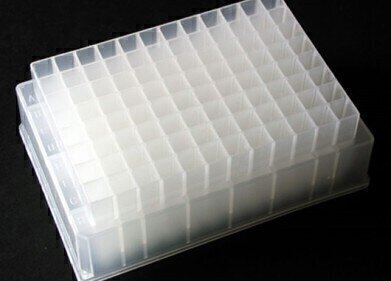-
 Biochemistry research has indicated how mice may resist developing obesity
Biochemistry research has indicated how mice may resist developing obesity
Preparative
Biochemistry analyses mouse resistance to obesity
Feb 04 2011
Writing in BMC Genomics, an open-access, peer-reviewed periodical covering all aspects of genomic research, they explain how gel filtration chromatography allowed plasma lipoproteins to be investigated in their mouse test subjects.
Subsequent fast protein liquid chromatography further separated out the major lipoproteins from their samples, so that cholesterol distribution could be studied.
The team found HDL cholesterol, which protects against obesity, was elevated in the mice categorised as "lean" compared with those deemed to be "fat".
Higher HDL, accompanied by upregulation of synthesis of bile acids, may explain how cholesterol is excreted from lean mice, allowing them to avoid becoming obese, they suggest.
In their conclusion, the team write: "We identified novel candidate molecular targets and metabolic changes which can, at least in part, explain resistance to obesity development in the 'lean' line."
Digital Edition
Chromatography Today - Buyers' Guide 2022
October 2023
In This Edition Modern & Practical Applications - Accelerating ADC Development with Mass Spectrometry - Implementing High-Resolution Ion Mobility into Peptide Mapping Workflows Chromatogr...
View all digital editions
Events
ACS National Meeting - Fall 2024
Aug 18 2024 Denver, CO, USA
Sep 04 2024 Chiba, Tokyo, Japan
Sep 04 2024 University of Warwick, Coventry, UK
Sep 10 2024 Rockville, MD, USA
Plastics Recycling World Expo Europe
Sep 11 2024 Brussels, Belgium













